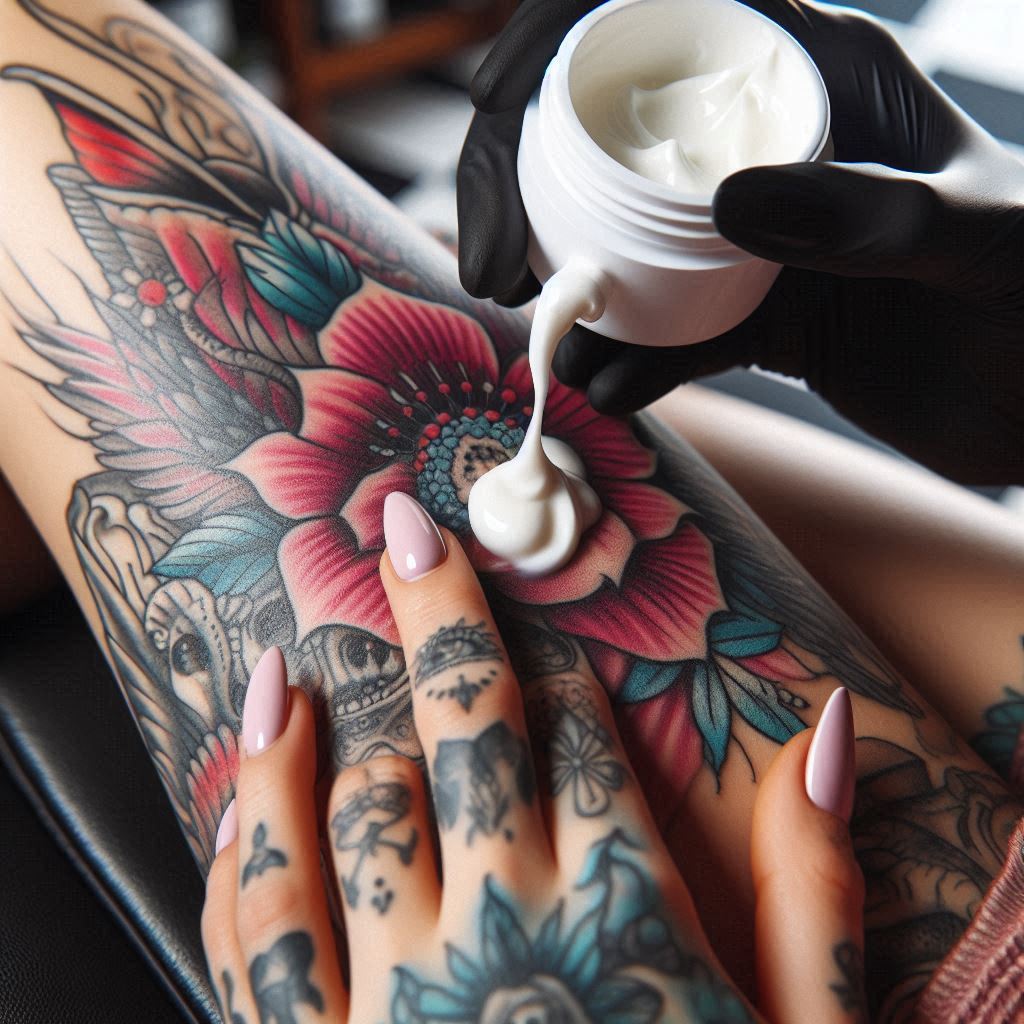How Do You Clean and Moisturize Your Tattoo?
What Products Can You Use or Avoid?
Use fragrance-free, alcohol-free soaps and lotions. Use products that are clearly marked as
tattoo aftercare or for sensitive skin. Petroleum-based ointments should be avoided unless specifically recommended by your tattoo artist because they can clog pores and lock in bacteria.
How Often Should You Moisturize?
Apply a thin layer of tattoo-friendly moisturizer 2–3 times a day. Don’t overdo it—too much moisture can suffocate the tattoo and cause breakouts or scabbing. The goal is to keep the skin hydrated, not greasy.
What Are the Common Healing Stages of a Tattoo?
How Does the Skin React in the First Week?
In the first few days, your tattoo could look red, swollen, or a little warm to the touch—don’t worry. When it starts healing, the skin will peel off like a sunburn. It is a normal sign that the top layer of skin is repairing itself.
Is It Normal for a Tattoo to Itch or Flake?
Yes, it is absolutely normal to itch, but don’t scratch it. Picking at or scratching peeling skin may remove the ink and cause scars. Gently tap the area or put on some moisturizer to relieve the itch.
What Not to Do While It’s Healing
Is It Possible to Exercise or Swim With a Healing Tattoo?
Avoid swimming, hot tubs, saunas, and heavy workouts that cause excessive sweating for at least 2–3 weeks. Moist environments increase the risk of infection and delay healing.
What About Sun Exposure and Tight Clothing?
Sunlight is the
tattoo’s worst enemy. Keep your tattoo covered at all times if you go outside. When healed, use SPF 30+ sunscreen as a regular part of your skin care routine. Tight clothing also rubs the skin and peels off scabs too early, so wear loose clothing.
How Do You Know If Something’s Wrong with the Healing?
What Are the Signs of Infection or Allergic Reaction?
Some redness and swelling are to be expected, but if your tattoo gets very red, hot, swollen, or pus starts oozing from it, it might be infected. Also, rashes, intense itching, or bumps that have become raised could be a sign of an allergic reaction to the ink or product applied.
When Should You See a Doctor or Tattoo Artist?
If you think you have an infection, or your symptoms fail to clear up after a couple of days, then see a doctor. You can also contact your tattoo artist—tattoo artists know whether what you have is a run-of-the-mill healing complication or something worse. Never attempt to treat an infected tattoo yourself without advice from a professional.
How Do You Take Care of Your Tattoo After It Heals?
What Are Long-Term Habits That Make Tattoos Look Sharp?
Once recovered, your tattoo also has to be attended to. Make sunscreen use your religious way of life. Sun will ruin your tattoo quick. Moisturize your skin regularly and steer clear of hard chemicals used right over the area inked.
How Do I Do Tattoo Touch-up?
Yes, all artists do touch-ups, particularly if some of the areas did not heal particularly well. These are typically performed for free or at a low cost a few months after the initial session. Don’t be afraid to inquire—it’s all part of the longer-term care for your ink.
